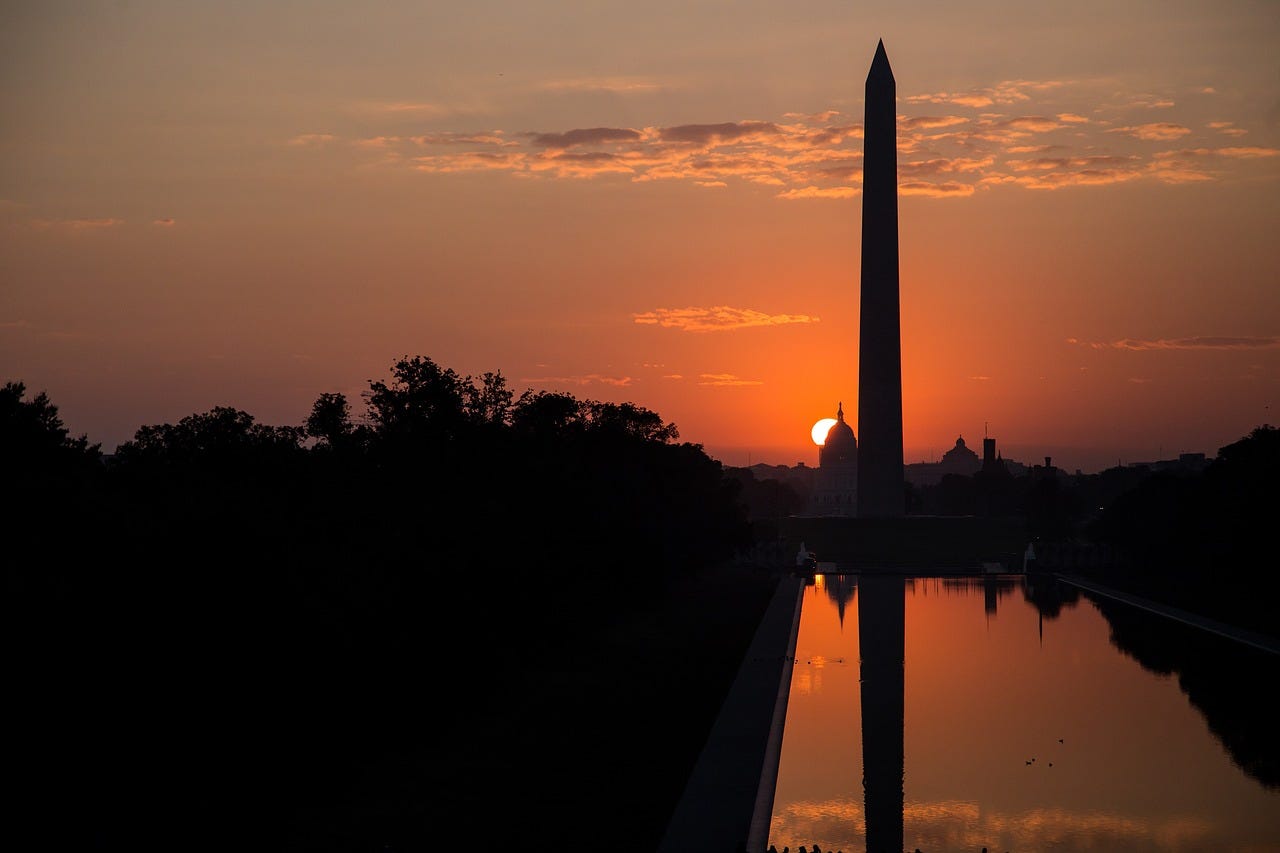On January 11, 1989, at 9:02 p.m., President Ronald Reagan delivered his farewell address from the Oval Office at the White House.
His concluding remarks are as relevant today as they were 35 years ago. Maybe more.
Definitely worth thinking about as America celebrates its independence.
Finally, there is a great tradition of warnings in Presidential farewells, and I've got one that's been on my mind for some time. But oddly enough it starts with one of the things I'm proudest of in the past 8 years: the resurgence of national pride that I called the new patriotism. This national feeling is good, but it won't count for much, and it won't last unless it's grounded in thoughtfulness and knowledge.
An informed patriotism is what we want. And are we doing a good enough job teaching our children what America is and what she represents in the long history of the world? Those of us who are over 35 or so years of age grew up in a different America. We were taught, very directly, what it means to be an American. And we absorbed, almost in the air, a love of country and an appreciation of its institutions.
If you didn't get these things from your family you got them from the neighborhood, from the father down the street who fought in Korea or the family who lost someone at Anzio. Or you could get a sense of patriotism from school. And if all else failed you could get a sense of patriotism from the popular culture. The movies celebrated democratic values and implicitly reinforced the idea that America was special. TV was like that, too, through the mid-sixties.
But now, we're about to enter the nineties, and some things have changed. Younger parents aren't sure that an unambivalent appreciation of America is the right thing to teach modern children. And as for those who create the popular culture, well-grounded patriotism is no longer the style.
Our spirit is back, but we haven't reinstitutionalized it. We've got to do a better job of getting across that America is freedom -- freedom of speech, freedom of religion, freedom of enterprise. And freedom is special and rare. It's fragile; it needs production [protection].
So, we've got to teach history based not on what's in fashion but what's important -- why the Pilgrims came here, who Jimmy Doolittle was, and what those 30 seconds over Tokyo meant...
If we forget what we did, we won't know who we are. I'm warning of an eradication of the American memory that could result, ultimately, in an erosion of the American spirit. Let's start with some basics: more attention to American history and a greater emphasis on civic ritual.
And let me offer lesson number one about America: All great change in America begins at the dinner table. So, tomorrow night in the kitchen I hope the talking begins. And children, if your parents haven't been teaching you what it means to be an American, let 'em know and nail 'em on it. That would be a very American thing to do.
And that's about all I have to say tonight, except for one thing. The past few days when I've been at that window upstairs, I've thought a bit of the ``shining city upon a hill.'' The phrase comes from John Winthrop, who wrote it to describe the America he imagined. What he imagined was important because he was an early Pilgrim, an early freedom man. He journeyed here on what today we'd call a little wooden boat; and like the other Pilgrims, he was looking for a home that would be free.
I've spoken of the shining city all my political life, but I don't know if I ever quite communicated what I saw when I said it. But in my mind it was a tall, proud city built on rocks stronger than oceans, wind-swept, God-blessed, and teeming with people of all kinds living in harmony and peace; a city with free ports that hummed with commerce and creativity. And if there had to be city walls, the walls had doors and the doors were open to anyone with the will and the heart to get here. That's how I saw it, and see it still.
George Orwell framed it more ominously:
“He who controls the present controls the past. He who controls the past controls the future.”
Independence Day is not about picnics and fireworks. It's about remembering who we are as a people and what we've accomplished as a nation. It's about the need for enlightened leadership and responsible followership. And it's all on our shoulders.
Click here to watch the full address.
Image by Mark Thomas from Pixabay




